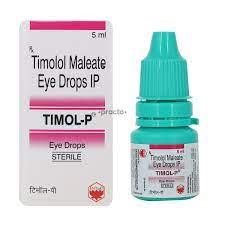A nurse is caring for an older adult client who reports dry, itchy skin. Which of the following actions should the nurse take?
Encourage the client to bathe frequently.
Apply powder to the client's skin.
Add moisturizing oil to the client's bath water.
Place a humidifier in the client's room.
The Correct Answer is D
Dry, itchy skin is a common concern in older adults, especially during the winter months or in dry environments. Increasing the humidity in the client's environment can help alleviate dryness and itching. Placing a humidifier in the client's room will add moisture to the air and help prevent excessive drying of the skin. It is important to ensure that the humidifier is clean and well-maintained to avoid the growth of bacteria or mould.
Encouraging the client to bathe frequently may further dry out the skin, so it is not recommended. Similarly, applying powder to the skin may exacerbate dryness and should be avoided. Adding moisturizing oil to the bath water may provide temporary relief, but a humidifier will have a more consistent and long-lasting effect on the client's environment.
Nursing Test Bank
Naxlex Comprehensive Predictor Exams
Related Questions
Correct Answer is B
Explanation
Choice A Reason:
There is no need to take a zinc supplement with timolol.
Choice B Reason:
"I should check my heart rate while taking this medication."This statement indicates an understanding of the teaching. Timolol is a beta-blocker eye drop used to lower intraocular pressure in clients with glaucoma. It can be systemically absorbed, and one of its potential side effects is bradycardia (slow heart rate). Therefore, clients taking timolol should be instructed to monitor their heart rate regularly, and if they notice a significant decrease in heart rate, they should notify their healthcare provider.
Choice C Reason:
Timolol does not typically darken the color of the eyes.
Choice D Reason:
Timolol does not dilate the eyes; it works to reduce intraocular pressure.

Correct Answer is C
Explanation
c. Roasted salmon
The nurse should include roasted salmon on the tray for the client who follows a kosher diet.
Kosher dietary laws prohibit the consumption of shellfish such as clams and shrimp, as well as pork products like pulled pork sandwiches. Roasted salmon, on the other hand, is a permissible food item in a kosher diet.
It's important for the nurse to be aware of the client's dietary restrictions and preferences to ensure that they receive appropriate and culturally sensitive care.
Whether you are a student looking to ace your exams or a practicing nurse seeking to enhance your expertise , our nursing education contents will empower you with the confidence and competence to make a difference in the lives of patients and become a respected leader in the healthcare field.
Visit Naxlex, invest in your future and unlock endless possibilities with our unparalleled nursing education contents today
Report Wrong Answer on the Current Question
Do you disagree with the answer? If yes, what is your expected answer? Explain.
Kindly be descriptive with the issue you are facing.
